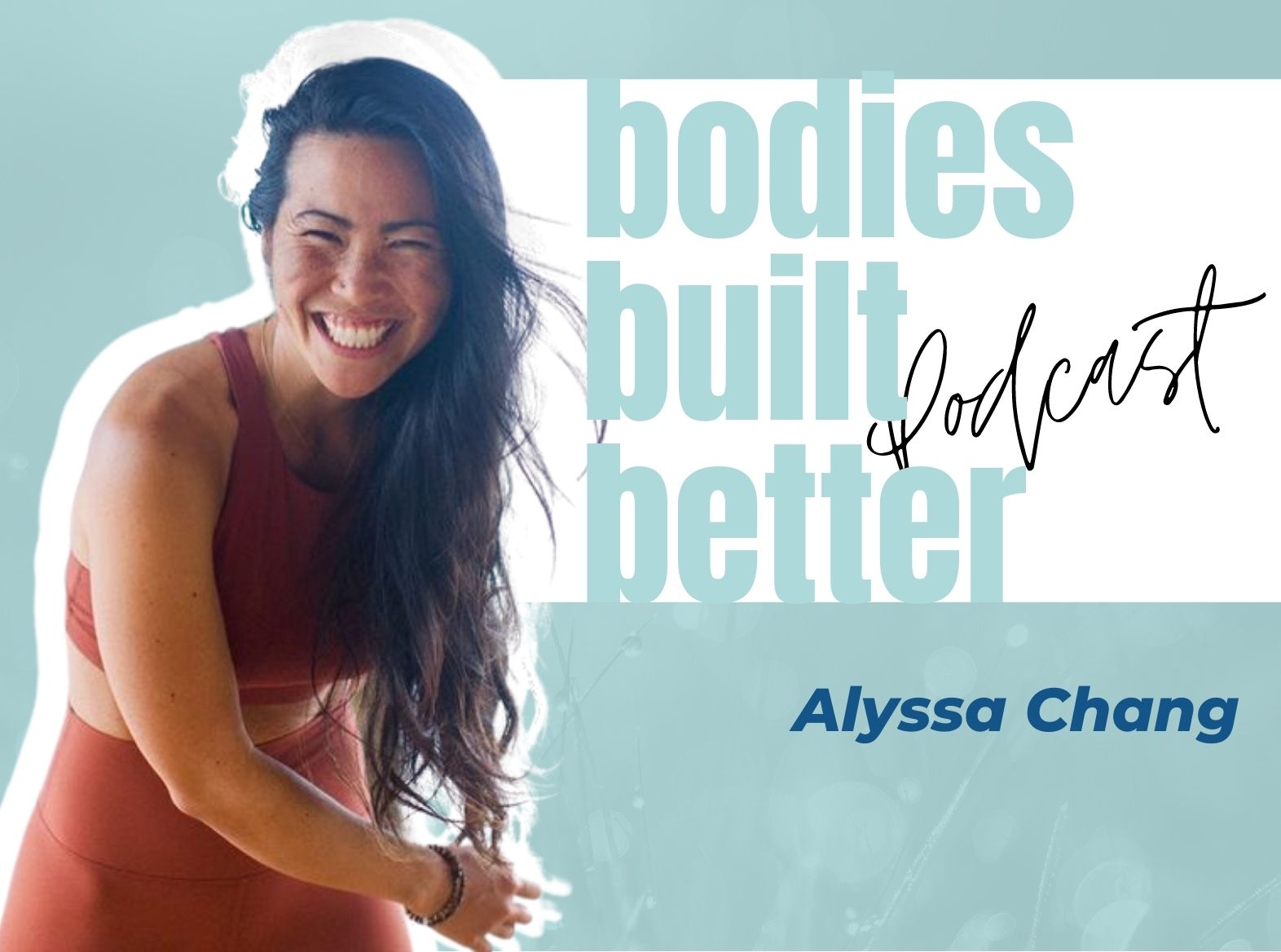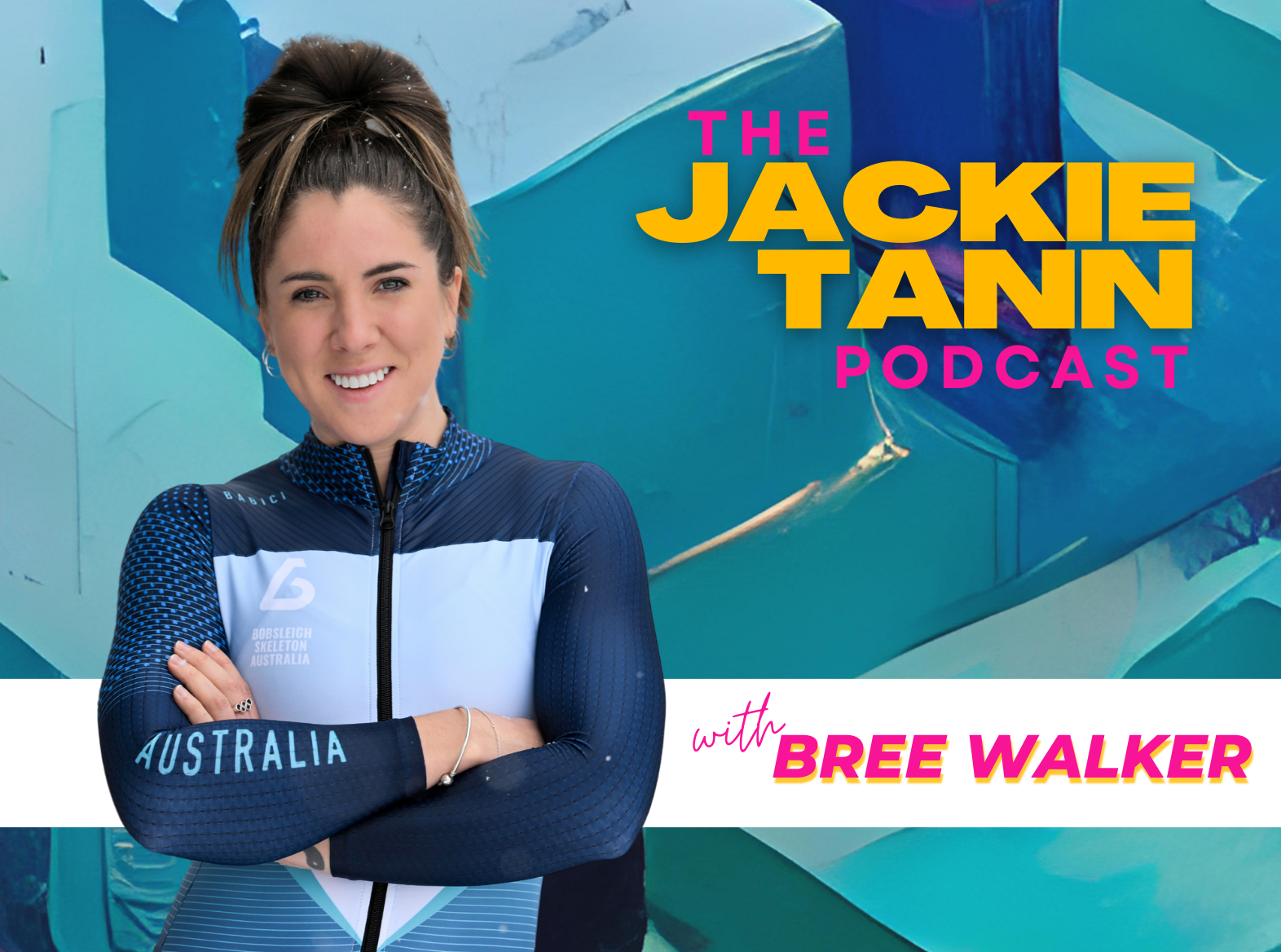Jackie
Alyssa, thank you so much for chatting with me today. I’m super excited to chat all things, neuroscience in movement, but also how the body and negative thoughts can impact you know, our health and how we move and what that looks like. So thank you again, for joining me. To kick this off. Let’s hear a bit about you and your story. Because I know that you’ve got a story that I think a lot of people and young women in general can can relate to as well. So um, let’s hear about you.
Alyssa 02:49
Okay, so, um, well, I think, you know, I haven’t, it’s been years since I’ve competed. And so I always forget that it has, you know, I would say, brought a level of connection to a lot of people and a lot of women going through very similar current struggles. So I previously was a collegiate athlete, I played volleyball. So I was in the mindset of really training for performance and training like an athlete, and everything I did eat was all for a specific reason, there wasn’t much like enjoyment, because I was so such a stickler on, like, I need to train now I need to do this. And so I was very focused. And you know, that focus after I graduated was kind of like just floating in space. Like, I don’t know what I do now. And you’ll see a lot of athletes go through this, like identity phase of, I don’t know who I am without my sport, you know, and I felt like a, like a little urgency of that. And I had a random friend just mentioned the concept of figure competitions, which is in the realm of bodybuilding. And I was like, I have no idea what that is. And so I went home, and I like googled figure competitions, and for your competitors. And you know, in my Google screen, there was just these women that, you know, appeared very happy, right? The big glamour stage smiles, the very lean bodies, the, you know, the whole production of it just looked glamorous in a way that I think, in my athletics, it was all about performance, where this was just going to test me in another way of like, the structure and the dieting and all of that, and, you know, as an athlete, you’re just like something hard. Sure, I’ll do that. And so I competed and unfortunately, you know, there are a lot of very cookie cutter type of programmes that truly disregard a lot of the you know, a lot of your health and so you know, I experienced what we call metabolic damage or a rebound post show. And with that, I developed a tonne of the anxiety, depression, a huge weight fluctuation because I was in such a starvation mode. I had pain in my body. I had weird bouts of vertigo. I had leaky gut like I mean, everything I was just so symptomatic. And yet I was doing everything what I thought was correct, right, still moving my body, so eating clean, but my body was just like rebelling against anything, I did anything. And so I was left in this space of like, I, you know, I don’t know what’s going on with my body, you know, and I felt very confused, very detached. And so, you know, I got into the work of neuroscience, right in the midst of like, one of my most, like, difficult times, and just my, you know, ally ship with my body. And it really opened up my lens to how much our nervous system is. So it’s always working for us, right? It’s working for us, it’s trying to protect us, keep us safe. And so all of my symptoms were just literally manifestations of like, everything that it was trying to protect me from. And so I learned extensively about the brain and how that intersects with our behaviours and our movements and our pain. And that’s currently what I do, and I teach with my students. I’m so excited for this.
Jackie 06:05
So brain based health and movement coach, yes, explain this.
Alyssa 06:11
Yeah. And you know, it’s always funny, because I feel like in a year from now, I might be calling myself something different. Because I was like, you know, in the health space, right, you think of a trainer, and they think like I’ve had, you know, years ago, my clients would always be like, you know, I call you my trainer, but you do a little different things, you know, and I was like, you’re right. And so I think the concept of trainer while I coach movement, and I’m focused on your health, and I take your health in, like, careful hands, my lens on your health is from a neuroscience lens. So I look at all the ways, you know, we can become symptomatic due to stress due to COVID, due to the election that we have in the US, right, all of these things that create a stressful body, and we look at that from this lens of your brain, and help provide kind of your own therapeutic tools that you can feel much safer and grounded in your body.
Jackie 07:10
Yeah, incredible. Well, let’s talk about the nervous system. Because I think, you know, as humans, if we think about training and movement, then we go, Yeah, well, how much am I going to lift or bench or whatever it is? How far Am I going to run? When I think about the nervous system? So what’s its role in our health and training and performance?
Alyssa 07:31
Yeah, you know, the so the nervous system in your so right, right? It’s like, here’s how many sets you do. calories you burn. And so it’s very prescriptive, right? So every single student I’ve had, right there so accustomed to these rules, and so when they step into my work, they’re like, Whoa, this is like literally shifting my entire paradigm of how I look at my body, how I look at health, in a way that’s like can be kind of confronting, because they’re like, why doesn’t eberyone else talk about this.
Jackie 07:59
totally
Alyssa 08:00
In this industry we train, everything from the neck down, right? We don’t talk about the jaw. We don’t talk about the tongue, the eyes, the ears, right? All of these things that are, again, so close to the brain, like why not, you know, and so your nervous system is your governing system. So she basically is controlling and interpreting and processing everything that’s going around going on around us, it could come down to temperature, light, people energy, right. And she’s always just scanning the environment like for, you know, how safe are you. And when we feel unsafe, we will have again, these very protective mechanisms put in place and mine is like I put on weight because I was in starvation mode too long, she needed to insulate my internal organs so that I could have like working digestive system, right, keeping my uterus and everything, just insulated. And so we look at our own process and are healing from this lens of like, Okay, how is she working for me? And what is she trying to tell me? And it just opens up this beautiful dialogue with your body in a way that again, the fitness industry bypasses because they’re like, No, no, just follow this. It doesn’t matter if you have pain you so fibre reps to go, whereas the nervous system is like, okay, you have pain, this is probably something we need to push, like, explore a little bit so you don’t get hurt more, you know, and it just opens up a dialogue with the body. And I think so many of us need more of that. Because we live in a world that’s very fast paced, that’s high stress that we become very detached and it’s no fault to us, right. It’s just this culture we live in. And so I’m always trying to get my students to like, you know, step back, push, pause and like ask themselves questions.
Jackie 09:44
You have this diagram, and you call it the stress bucket model, and I’m such a visual person so that resonates with me so much. Can you explain that for the listeners?
Alyssa 10:02
Yeah, it’s so good. He brought it up. So I was like, I need to like actually shoot like an official video for this, because it’s something I learned when I was studying neuroscience. And I teach it all the time. And it just helps bring the puzzle pieces together, you know. So you want to think of that you start every day with your own bucket. And in this bucket, you’re slowly filling it up with things, right. And you can think of the things that it fills up with as a variety of different categories. It’s your own health history, or past trauma that maybe gets thrown into the bucket. you factor in your relationships? Are they aligned with who you are, you’re Are you feeling connected, which is really hard right now with COVID. A lot of people are, I think, are feeling the strain and the pole of feeling disconnected. So their buckets getting heavier. And then we have like, obviously, the nutrition piece, right, we have the movement piece we have how well you’re breathing. What else is in very interesting category. Um, I think, you know, when it comes down to like recovery and sleep, that’s also a huge influencing factor on how heavy your threat bucket is. So let’s say you wake up in the morning, right? You went to bed really late. So when you woke up, you’re a little dragon, right? You’re tired, and then you’re woke up late, you’re like rushing your morning routine, you’re grabbing your coffee, you’re eating breakfast in the car, then let’s say you are for some reason, second traffic, right? Slowly but surely, your threat bookie gets heavier and heavier. And imagine all these little threats that you experienced, right little stressors, they just fill up your bucket. And then at the end of your day, you get home and you’re like, I have this pounding headache. I feel like my body is just exhausted and depleted. And I’m really irritable. And so your your own bucket can only, like hold so much before it expresses itself. And the loudest signal you’ll give you is pain. And pain is so personal to each of us. So whereas I might get anxious, you might get knee pain, right? Someone might have digestive flare ups, while the other person gets migraines. And so when we start to explore, like, a common question I asked my students is like, what’s in your threat bucket? What are you carrying? And it gives them the lens to be more compassionate to like, my bucket is so full today, you know, versus like, just feeling like What’s wrong with me? You’re like, wow, I miss breakfast. I slept late, did it? You know, a few times.
Jackie 12:24
I’m crying that’s hugging me or something. So Totally, yeah. So, you know,
Alyssa 12:30
like an analogy is so great from that lens. But it also, when we think about it, if you have the right tools, right, you can decrease your throat bucket throughout the day. So instead of continuing to compound to one another and get heavier and heavier, you’re like, ooh, well, I’m going to turn to my breathing strategy I learned, right, they do some deep breathing, then their throat bucket decreases. So then at the end of the day, they don’t maybe have a migraine. Maybe they’re just a little anxious, you know? Yeah, yeah. So
Jackie 12:55
you’re trying to get in that deficit type thing? Yeah, amazing.
Now, I don’t know if this is a very broad and large question whether we need to break it down. But the gut brain axis and the influence on the vestibular system of the vestibular system on the gut brain access system. Tell us more about this. Do we need to break down gut brain access is first before we get into why the stimulus has an effect on it?
Alyssa 13:28
Yeah, so I’ll, I love this question. Because it’s a really into like the nerdy neuroscience word. And so you know, oftentimes, my students will come to me with some inflammation, some gut stuff, you know, they’re constantly bloated. Maybe their stomach hurts often. Maybe they have weird bowel movements, right? Yeah, that’s..
Want to work with Alyssa:
Website: https://www.coachalyssachang.com/
Instagram: @coachalyssachang
Get in touch: jackie@jackietann.com | @jackietann_rmt












